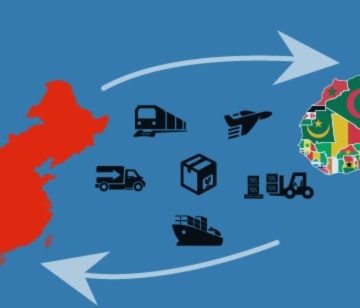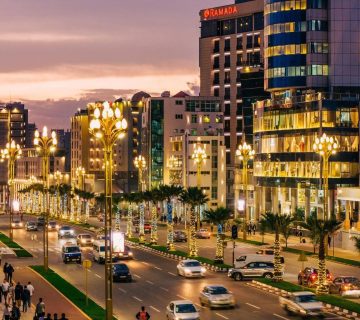It is ten months since Prime Minister Abdallah Hamdok resigned from his post as Prime Minister on January 3, 2022, amid the transition from military rule to civilian rule. This transition was led by Hamdok under a three-year power-sharing agreement among ordinary civilians, the military, and protest groups. The resignation of Hamdok, who is the Chair of Intergovernmental Authority on Development (IGAD), whose mission entails promoting regional cooperation and integration, draws attention to the challenges of quiet diplomacy that IGAD faces when dealing with internal political crises such as Sudan’s and conflict of interest in such situations. IGAD and its member states should consider the devolution of additional political power to IGAD as well as developing a means of financial self-reliance if IGAD hopes to improve its mediative capacity in a region that is plagued with several threats to regional peace and security.
IGAD’s Capacity
IGAD generally lacks the financial independence to effectively engage in the intervention and mediation of conflicts among member states. This is especially worrying when considering that states in the IGAD region such as Sudan are fragile with weak democratic institutions. The institution’s financial capability is limited, as IGAD does not have frameworks towards self-funding. Economic Community of West African States (ECOWAS) for instance has placed a 0.5 per cent levy on goods, transacted in the region from non-member states, which is used in financing its activities.
Thus, IGAD is mainly dependent on foreign funding to help support its activities in the region. This means that the IGAD has limited independent resources to help these states establish the required institutions to facilitate long-term peace, and due to external funding, IGAD is vulnerable to agenda-setting by external actors.
While it is true that IGAD played a crucial role in Sudan’s peace process in 2005 by spearheading the efforts that resulted in the Comprehensive Peace Agreement, the same has not been reflected in other IGAD member states. For instance, IGAD’s role in the conflict between Tigray People’s Liberation Forces and the Ethiopian government was greatly hindered by the absence of an enforcement mechanism. Unlike ECOWAS, IGAD does not have the mechanisms in place to move more decisively when conflict arises in the region. This swift reaction (by ECOWAS) has created a norm in the region where states are now familiar with and reliant on the mechanisms of ECOWAS. IGAD does not share the same reputation or track record in East Africa, and this can be attributed to its current limited capacity.
IGAD’s political capacity is also underwhelming. For instance, IGAD is not the leading actor in Sudan’s peace process. While, on September 22, 2021, IGAD made a statement condemning the unconstitutional act by the military in Sudan, it has been unable to leverage this ‘unconstitutionality’ for economic and political support for Sudan’s peace process to take action. If IGAD had considerable political power in the region, functioning as a supranational body in the area, then they would not need to call upon other entities to embolden their efforts in Sudan.
Furthermore, the current structures and mechanisms of IGAD to deal with the unsettled political climate in the Horn of Africa are lacking due to limited political capacity. Hamdok has not been in a capacity to do his job, and yet no interim chair has taken his place. This lack of a clear transition of power showcases a lack of preparation to handle unprecedented situations. The institution needs to reconsider the status quo and ensure the member state’s instability does not handicap them.
IGAD’s Conflict of Interest
The impartiality of the institution is compromised as a key ingredient in conflict resolution. For instance, IGAD’s first mediation process occurred after the Sudanese government enlisted its help in 1990 to help reach peace with the Southern rebels. This was an attempt by the Sudanese government to engage an external figure, which they viewed as harmless, and to keep the international community at bay. This was despite these activities falling outside the scope of IGAD’s mandate. Mediation figures need to be trusted by the conflicting members and show no bias. This has not been the case with IGAD. Member states play a role in the administrative capacity of the institution. When conflicts are ongoing, and these figures still hold seats (be they symbolic or not), it is challenging for other parties to believe that IGAD is a neutral mediator.
Perception is key, in this instance if IGAD is perceived as a club of heads of state and Governments, then it loses its credibility and the trust of member states. The decisions and interventions of the organization must promote trust, instead of being seen as serving the interests of some actors to the detriment of others. Thus, member states need to empower IGAD either by agreeing to be bound by regional rules and decisions, or by giving an institutional secretariat some independent authority.
How Can IGAD Improve?
Regional autonomy is key. Promoting the engagement of civil society in IGAD’s peace and security initiatives needs to be part of this reform. While it is important that IGAD’s member states need to review the organization’s mandate and increase its political power, empowering the organization and lending it weight, it is crucial to acknowledge that IGAD first needs some financial self-reliance. This would help IGAD to be more effective and earn more trust from member states since external influence through financial aid is diminished.
The first step would be to minimize funds that are externally drawn. As of now, the majority of IGAD’s funding is supported by external actors and donors. Making it very difficult for member states to fully trust the regional organization as donors and facilitators are feared to set the agenda of the organization. Hence, IGAD member states need to provide the financial means by committing to regularly meet their quarters, this would be based on the logic that investing in the maintenance of peace and security in the region amounts to buying security for their efforts to build better lives. Additionally, IGAD can adapt as ECOWAS to develop a means of self-funding in the region.
Raudhat is a Research Assistant at the HORN Institute
Photo Credit: Sudanese citizens protesting in Khartoum over the killing of a demonstrator in January 2022 (Photo Credit: Faiz Abubakar Muhamed/The New York Times/USIP)
The contents of this article are copyright of © The HORN Institute 2022. All rights reserved. Any redistribution or reproduction of part or all of the contents in any form and for whatever reason is prohibited. You may use the content of this article for personal reasons, but acknowledge the author and cite the website as sources of the material.



